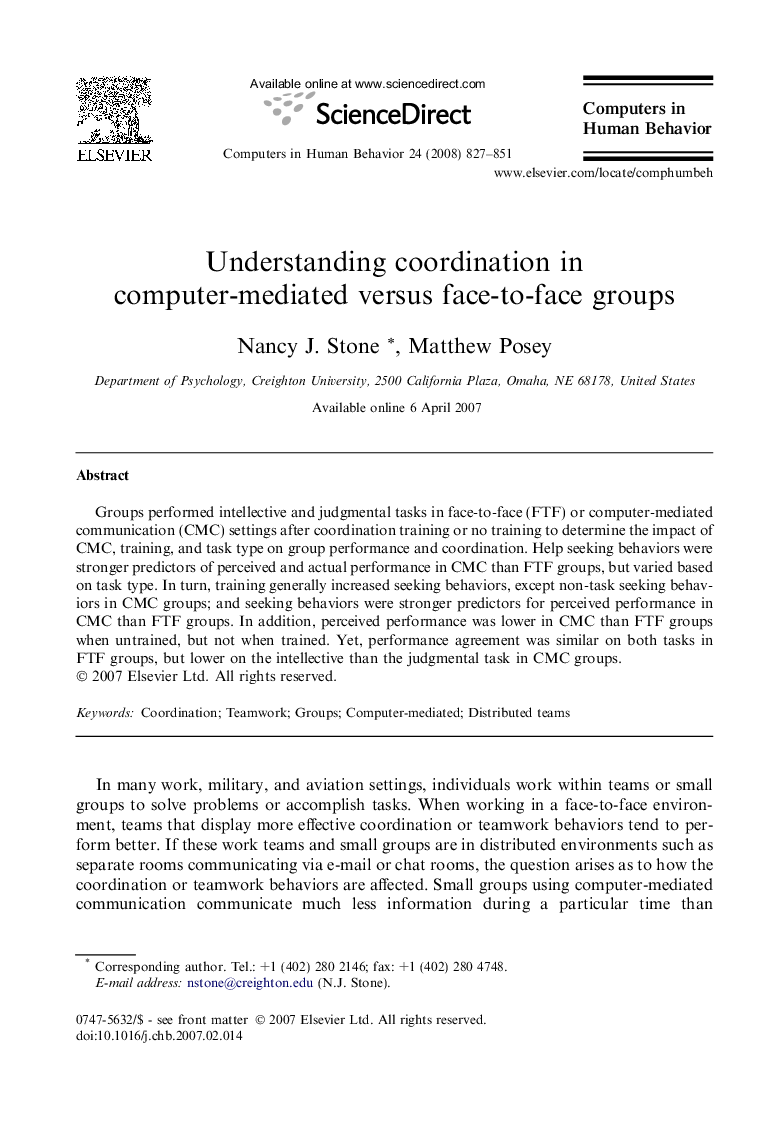| کد مقاله | کد نشریه | سال انتشار | مقاله انگلیسی | نسخه تمام متن |
|---|---|---|---|---|
| 351681 | 618475 | 2008 | 25 صفحه PDF | دانلود رایگان |

Groups performed intellective and judgmental tasks in face-to-face (FTF) or computer-mediated communication (CMC) settings after coordination training or no training to determine the impact of CMC, training, and task type on group performance and coordination. Help seeking behaviors were stronger predictors of perceived and actual performance in CMC than FTF groups, but varied based on task type. In turn, training generally increased seeking behaviors, except non-task seeking behaviors in CMC groups; and seeking behaviors were stronger predictors for perceived performance in CMC than FTF groups. In addition, perceived performance was lower in CMC than FTF groups when untrained, but not when trained. Yet, performance agreement was similar on both tasks in FTF groups, but lower on the intellective than the judgmental task in CMC groups.
Journal: Computers in Human Behavior - Volume 24, Issue 3, May 2008, Pages 827–851